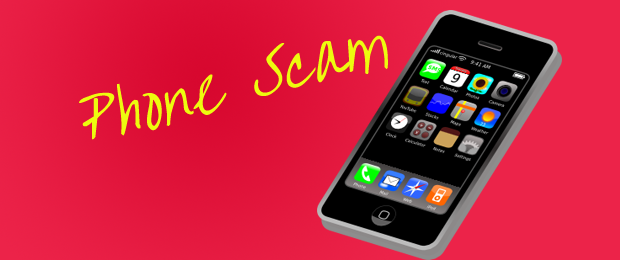Today several local residents reported receiving text messages asking for their name, age, and other personal information claiming they would receive $550 from lottery winnings if they replied. This is a scam commonly used to get the recipients information. The best response is NO response to these sort of messages and calls that are becoming more commonplace.
ATTENTION Call back now to reactivate your credit card.
Be the first person to visit this link and win a free gaming system!
Text messages like these are quick to grab our attention. Studies show that the majority of incoming text messages are opened within 15 minutes of receipt. Scam artists know this and sometimes target consumers with “phishing†scams via text message or SMS (short message service).
Text message or SMS phishing—also called “smishingâ€â€”occurs when scam artists use deceptive text messages to lure consumers into providing their personal or financial information. The scam artists that send smishing messages often impersonate a government agency, bank, or other company to lend legitimacy to their claims. Smishing messages typically ask consumers to provide usernames and passwords, credit and debit card numbers, PINs, or other sensitive information that scam artists can use to commit fraud.
Avoid Smishing Scams
Don’t be misled by smishing scams. Remember the following:
- Government agencies, banks, and other legitimate companies never ask for personal or financial information, like usernames, passwords, PINs, or credit or debit card numbers via text message.
- Don’t be rushed. Smishing scams attempt to create a false sense of urgency by implying that an immediate response is required or that there is a limited time to respond.
- Don’t “click†open links in unsolicited text messages. Clicking the link may infect your mobile device with a virus or malware designed to steal the personal or financial information stored on the device.
- Don’t call a telephone number listed in an unsolicited text message. Scam artists often use email-to-text technology, short codes, or spoofed local numbers to hide their identity. You should contact any bank, government, agency, or company identified in the text message using the information listed in your records.
- Don’t respond to smishing messages, even to ask the sender to stop contacting you. Responding to smishing messages verifies that your phone number is active and that you are willing to open such messages, which may lead to an increase in the unsolicited text messages you receive.
- Use caution when providing your cell phone number or other information in response to pop-up advertisements and “free trial†offers. This personal information can be easily bought, sold, and traded, and make you a target for smishing scams.
- Never provide your personal or financial information in response to text messages from unknown senders. Verify the identity of the sender and take the time to ask yourself why the sender is asking for your information.
- Use the same safety and security practices on your cell phone as you do on your computer: be cautious of text messages from unknown senders, as well as unusual text messages from senders you do know, and keep your security software and applications up to date.
Phishing emails and text messages often tell a story to trick you into clicking on a link or opening an attachment. They may
- say they’ve noticed some suspicious activity or log-in attempts
- claim there’s a problem with your account or your payment information
- say you must confirm some personal information
- include a fake invoice
- want you to click on a link to make a payment
- say you’re eligible to register for a government refund
- offer a coupon for free stuff
